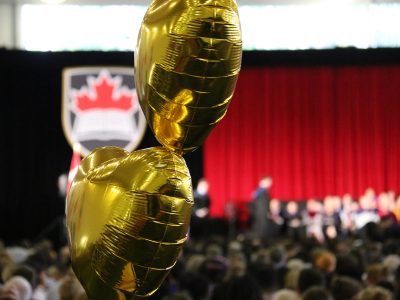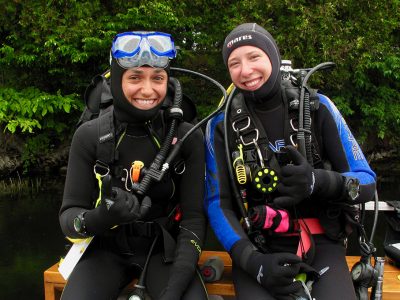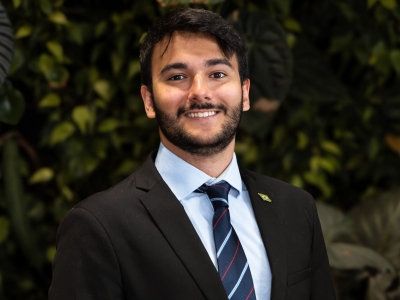By Alysha A. Cunningham
Solving big problems demands that we challenge conventional ways of thinking and doing, and imagine new possibilities. Carleton University has grown to become one of the most resourceful and productive hubs of learning and growth in Canada, forging partnerships to create research and education that tackles complex challenges and improves lives.
Learn more about Carleton’s innovative, inclusive and sustainable impact.
Mapping Out a Solution to Canada’s Labour Shortage
Canada plans to increase annual immigration to 500,000 by 2025 to address labour needs. However, newcomers face challenges in securing meaningful employment despite their experience or education. Researchers Luciara Nardon and Amrita Hari are working on solutions to address Canada’s labor shortage through improved immigration support.
“Newcomer service organizations try to pair people up with jobs, but often they’re looking for immediate results,” explains Hari, the director of Carleton’s Feminist Institute of Social Transformation. “They’re not thinking as much about the career trajectory of the newcomer. Similarly, somebody who needs to pay their bills right away is not going to wait for the perfect job. We need to shift the conversation away from quick fixes and concentrate on incremental change over time.”
New Non-Invasive Tool Detects Alzheimer’s & Parkinson’s Early
Researcher Ravi Prakash and his team are improving healthcare for the aging population. They have developed a ground-breaking, non-invasive tool that examines saliva to detect early signs of Alzheimer’s and Parkinson’s disease. Unlike traditional methods, this approach challenges the previous belief that biomarkers for these diseases could only be found in blood or tissue, providing a potential breakthrough in early diagnosis before significant cognitive and physical deterioration occurs.
“With early intervention, the symptoms of these diseases can be reversed, and medications and therapies can be put into place to prevent or slow further deterioration,” says Prakash, an electrical and biomedical engineer and lead researcher in Carleton’s Organic Sensors and Devices Lab.
The New Virtual Classroom
Everything is changing in education. School staffing and resources are often stretched, causing society to have to rethink how we deliver courses. Researchers Troy Anderson and Ali Arya are revolutionizing classrooms with holograms and virtual reality, creating immersive learning experiences without boundaries. Their innovative technologies are reaching students across the world.
“We can create all kinds of immersive environments that are difficult or impossible to have in the physical world,” says Arya, a researcher from Carleton’s School of Information Technology. “These can help students understand concepts that are complex and abstract or difficult to visualize.”
Helping Children Learn Math
Math is incredibly useful in everyday life. As important as it is, many people struggle with math from a very early age — struggling to catch up to their peers. Cognitive science researchers Jo-Anne LeFevre and Heather Douglas have developed a screening tool to help teachers and school boards quickly identify which kids are having a hard time with math, so the appropriate supports can be implemented to help them succeed.
“How you’re doing in math in kindergarten will predict how you’ll do in grade six, and students who struggle may drop it once they get to high school,” says LeFevre, the director of Carleton’s Math Lab, who has been doing research on cognitive development and numeracy for more than 40 years. “Math may not come easily to everybody, but neither does reading. We send children to school to learn things they won’t pick up naturally through normal everyday experiences. So schools have a responsibility to help children succeed at both reading and math.”
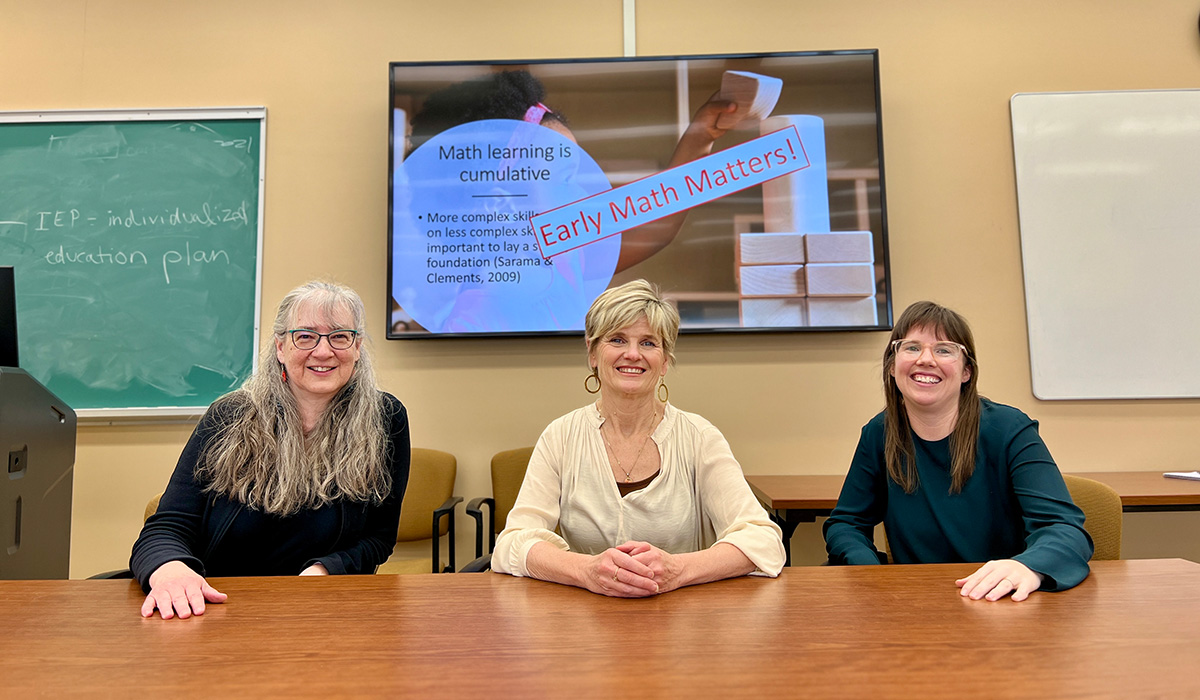
LeFevre with fellow cognitive science researcher Heather Douglas and Carleton University colleague Rebecca Merkley (Brenna Mackay)
Fighting Asthma and Lung Disease
Systems and Computer Engineering researcher Leila Mostaço-Guidolin is working to better understand the causes of asthma and chronic lung diseases in order to advance treatments and one day find a cure. Using high-resolution imaging and 3D bioprinting, her team is replicating human airways to find effective remedies.
“We are trying to mimic the breathing process,” she says. “The ultimate goal is to have a structure similar to human airways and lung tissues — to have them surviving and interacting with one another in this artificial environment. Then we’ll be able to biochemically track what happens when the triggers of diseases like asthma make cells behave in a certain way.”
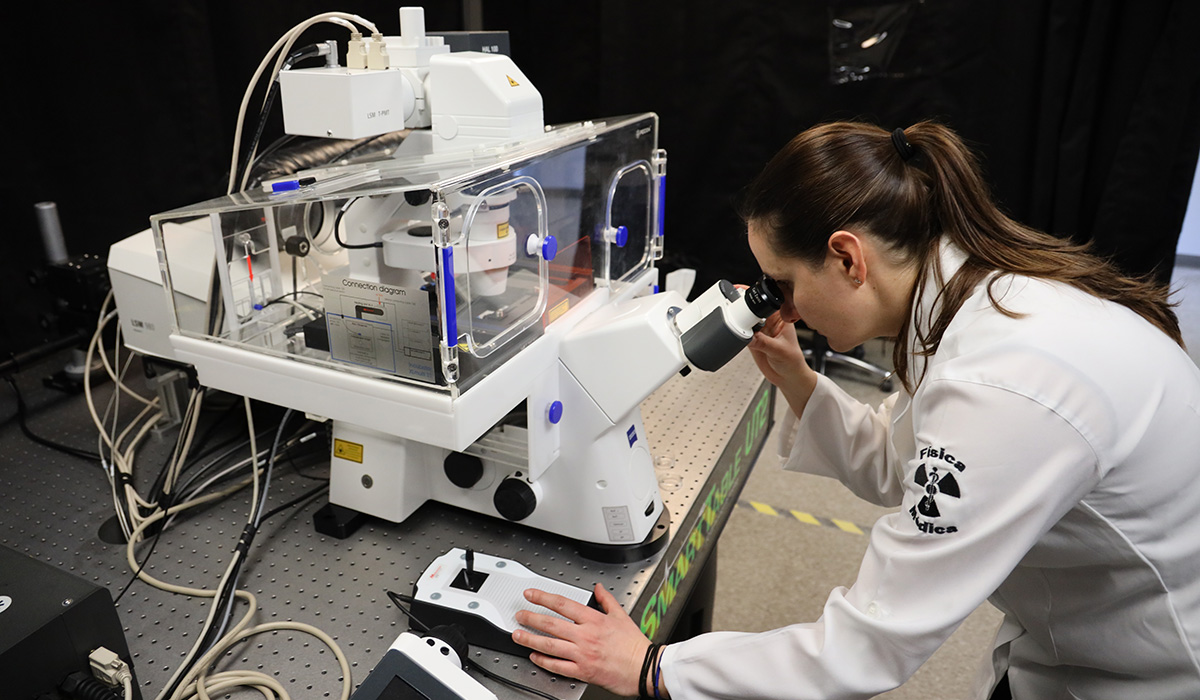
Carleton University Systems and Computer Engineering researcher Leila Mostaço-Guidolin.
Challenge What’s Possible
Read more stories about innovation, sustainability, technology and how Carleton — through its researchers, students, alumni and partners — is making a positive impact on the world.
Challenge What's Possible Website
Wednesday, December 13, 2023 in Challenge, Faculty of Arts and Social Sciences, Faculty of Engineering and Design, Faculty of Graduate and Postdoctoral Affairs, Faculty of Public and Global Affairs, Faculty of Science
Share: Twitter, Facebook
